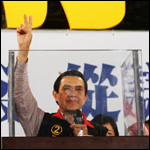Registration
You will receive an email confirming your registration.
IMGXYZ1223IMGZYXThe 30-year anniversary of the Taiwan Relations Act (TRA) coincides with a period of relative calm in cross-straits relations. As tourist exchanges and economies ties between China and Taiwan deepen, growing numbers of observers question whether Taiwan should or needs to pursue its goal of de jure independence as aggressively as it has.
Reassessing the TRA is part of a broader reconsideration of cross-straits relations and American policy towards Taiwan. To undertake that task, Carnegie hosted a panel featuring Steven Goldstein, director of Harvard University's Taiwan Studies Workshop; and Robert Sutter, visiting professor of Asian Studies at Georgetown University's School of Foreign Service. Carnegie's Douglas Paal moderated the event.
The TRA Did Not Represent a Major Innovation in American Foreign Policy
Goldstein argued that far from representing a major innovation in American foreign policy, the TRA was quite consistent with U.S. strategic views on Asia in the postwar era:
- Since the late 1940s, support of Taiwan, more than anything else, has been seen as the measure of American credibility in its commitment in Asia.
- The United States' commitment to Taiwan was seen as symbolic of its broader struggle against communism during the Cold War.
- Because Beijing refused to renounce the use of force against Taiwan, civil war between the mainland and Taiwan was a real possibility, and the foundation of the Sino-American rapprochement was shaky.
- Beijing's posture, as well as American policy makers' conviction that America had to maintain its credibility in Asia, meant that the United States had to make a security commitment to Taiwan.
- Since the 1950s, American policy makers were concerned not to make too firm a commitment to Taiwan, lest they provoke China into an attempt to conquer it, but were also concerned not to make too soft a commitment, lest they fail to deter Chinese adventurism.
- Congress used the controversy over Taiwanese independence to shape its China policy.
Goldstein suggested that the TRA's enduring relevance has less to do with the purported foresight with which it was drafted, and more to do with the relative stability of the strategic situation in Asia. He argued, however, that six developments of the past decade or so could change that reality:
- China's growing economic power in Asia, as well as its attempt to develop an "amicable cordon" of friendly neighbors
- The enhanced Sino-American relationship, the result not only of design but also of necessity
- Taiwan's democratization, coupled with demands that it be accorded greater international recognition
- The weakening of Congressional support for Taiwan
- The dramatic shift in the cross-straits military balance
- Burgeoning Sino-Taiwanese economic cooperation
Two Legacies
Professor Sutter argued that the TRA had two main legacies:
- An opposition to elitism and secrecy in policymaking
- An interest in sustaining a balance of influence in the Taiwan area that is favorable to Taiwan and the United States.
He contended that there has been insufficient mainstream attention paid to the changing dynamics of cross-straits relations, which have evolved incrementally. Sutter did not think that the growing military imbalance in favor of China would make it more inclined to take coercive action against Taiwan anytime soon. He did argue, however, that China's strategic footing in Taiwan is growing at the expense of America's.
Despite this new dynamic the United States is not eager to push the cause of Taiwanese independence given that Sino-Taiwanese cooperation is growing on a number of fronts, Chinese cooperation is needed on pressing global challenges, and, perhaps most importantly, Taiwan itself is not pushing for it aggressively.
Questions & Answers
Questions addressed the role that deepening economic ties between China and Taiwan might play in preventing an armed conflict between them; potential areas of conflict between the TRA’s provisions and American policy; growing Taiwanese nationalism; and the likelihood that the United States will maintain a “One China” policy going forward.
